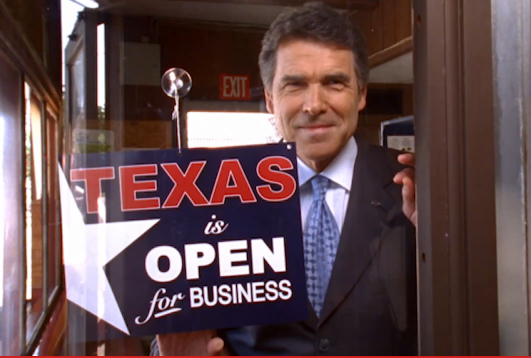There was a time when Bob Bullock was a staffer for Preston Smith. In responding to media criticism that Smith kept appointing his cronies to various high positions in state government, Bullock pointed out it would be very foolish for a politician to appoint someone not friendly to him. Certainly, this is a logical assumption when one chooses to make high appointments. Unfortunately, however, one would think a governor would give a great deal of consideration to qualifications even when choosing among his friends or buddies in appointing them to high office.
A close examination of what has been going on in Texas for the past few years almost makes me rethink my opposition to term limits. Rick Perry, being the longest serving governor in the United States, has now appointed every member of every major board or commission in Texas. Additionally, he has appointed or influenced the selection of both our major courts and most of our appellant courts throughout Texas. The sad part about it all is he appears to give more consideration to cronyism than to qualification.
The latest evidence that Perry cares more about the “buddy-buddy” system than he does qualification is the fact he recently appointed one of his staffers to the Texas Supreme Court. This staffer has no great credentials as a lawyer, has never served as a judge–even a justice of the peace–and has little to recommend him as a qualified person to interpret the basic law of the land as far as Texas is concerned.
Even more disturbing is that any examination of Perry’s history of appointments quickly raises the suspicion that appointments are pretty much for sale. Any time a major news outlet does an in-depth study of appointments to boards of regents, commissions such as Parks and Wildlife, the Public Utility Commission, etc., there is generally a connection between the appointment and at least a $100,000 contribution to Perry’s campaign.
Perry has insisted on the Legislature continuing to fund his technology fund and the Texas Fund for Investment to Attract New Business, as well as worthwhile endeavors such as the Cancer Prevention Research Institute of Texas. However, in-depth studies by major newspapers in the state, such as the San Antonio news media, Houston Chronicle and Dallas Morning News have revealed large chunks of taxpayers’ money has been passed out--allegedly in the name of creating new business development in Texas--but unfortunately, after the large sums are ladled out to Perry’s buddies, all too often the job growth expectation does not come about, or the business goes under leaving little to benefit the taxpayers of Texas who footed the bill. Even the Texas Legislature, which is not noted for great courage in attacking the governor’s programs, has raised the issue of accountability in many of these so-called economic development programs presided over by the governor.
Unfortunately, most Texans, as well as citizens of the United States, obtain most of their news from sound bites on television. Again, unfortunately, television has neither the inclination nor the time to spend on what seems to me to be the makings of a real scandal. Recently, the Houston Chronicle published several stories concerning what they call the scandal-plagued Cancer Prevention Research Institute of Texas. The Institute was the brainchild of a former staffer and good friend of Ann Richards. Almost three billion dollars was set aside to try to combat cancer in Texas along the lines of the way California attacked the stem cell research.
The Dallas Morning News and Houston Chronicle have revealed, for example, a Dallas businessman, David Shanahan, invested $90,000 in a campaign contribution to Rick Perry and David Dewhurst. He received a great return on his investment in that a grant from the Cancer Prevention Research Institute netted him 12.8 million dollars. Another Dallas businessman, Peter O’Donnell, was one of the venture capitalists responsible for raising almost a quarter million dollars for Perry in recent campaigns and received for his trouble an 11 million dollar grant from the Texas Bio-Tech Fund--without any of the legislative required input from business or scientific review panels.
I’ve always felt that a politically conservative person, particularly in Texas, was one who wanted to be very frugal with the taxpayers’ dollars and limit government activity to those things which could best be done by government and not private sector. Unfortunately, it is my belief Rick Perry and his accomplices have given a new meaning to Texas conservatism and business climate--that is to say, the new Texas conservatism a la Perry is "Take care of your fat-cat buddies so long as they take care of you and underwrite your next campaign for president."












